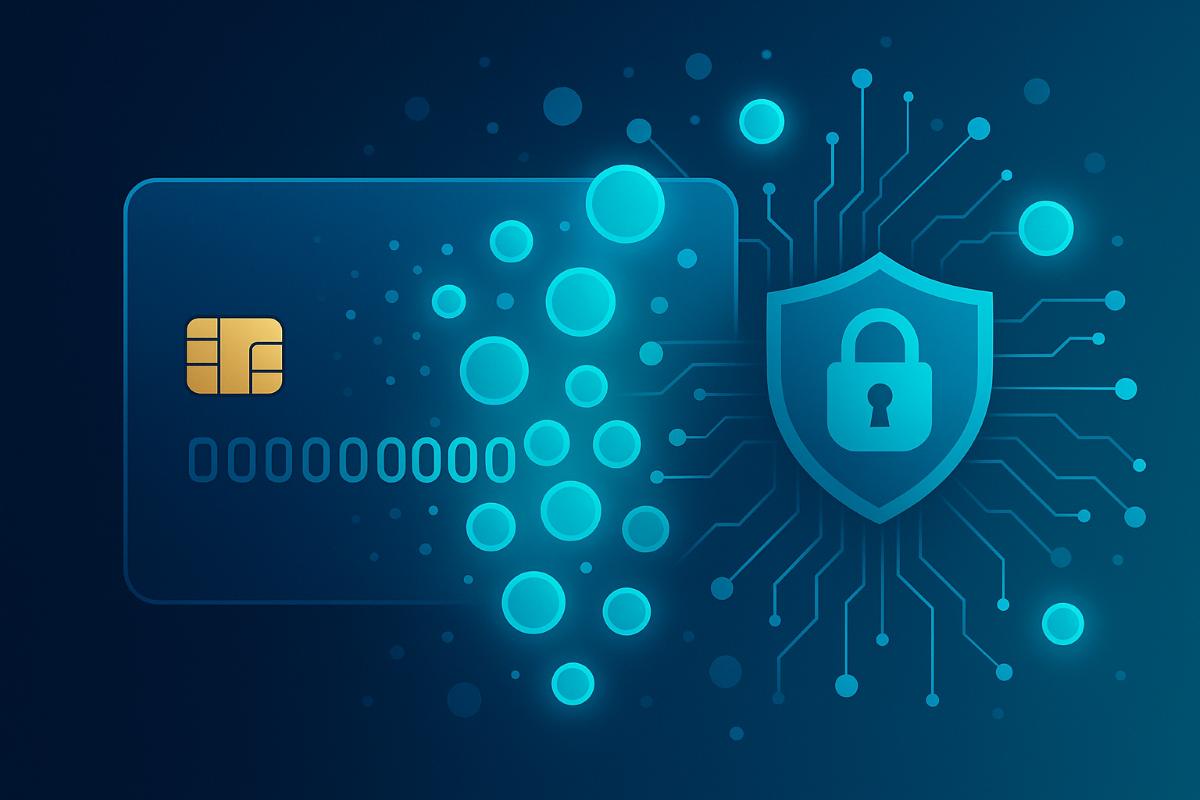As the digital finance ecosystem continues to expand, the security of card data has become one of the industry’s most critical priorities. Especially in e-commerce, fintech, and mobile payment systems, card tokenization technology enhances information security while also improving the user experience.
In this transformation, payment security, data integrity, and user trust have moved to the center of competitive advantage.
What Is Card Tokenization and Why Is It Critical?
Card tokenization is a technology that replaces a customer’s actual card number with a randomly generated, non-functional “token.” These tokens can only be converted back into real card data by authorized systems. This means actual card information is never stored in merchant systems.
This approach prevents data breaches and significantly increases the level of payment security. Instead of transmitting unprotected card numbers through third-party systems, tokens are used, thereby minimizing potential vulnerabilities.
PCI DSS Compliance: The Guarantee of Card Data Protection
Any system that processes card data must comply with PCI DSS standards. Tokenization not only eases PCI DSS compliance obligations but also enhances data protection levels. Because actual card data is never stored, the risk in the event of a data breach is drastically reduced. This not only addresses security needs but also builds lasting trust with users.
In addition, implementing a token-based system simplifies audit processes for payment infrastructure providers. Since no real card data is stored, the need for additional security controls is reduced, and PCI compliance remains intact even when systems like digital wallet integrations are introduced.
Payment Security: Preventing Fraud
Fraud is one of the most frequent risks in digital payment systems. Tokenization not only prevents data breaches but also reduces the risk of fraud. When only tokens are used instead of actual card numbers, any data obtained from a potential breach is meaningless. Unauthorized withdrawals or incorrect transfers become virtually impossible.
In mobile wallet services and e-commerce systems, token-based payment eliminates the need for users to re-enter card information for every transaction. This both accelerates the payment process and protects data even in insecure connections.
Secure Payment Experience with Digital Wallet Integration
Digital wallet systems streamline the payment process for both users and businesses. Firisbe’s digital wallet platform stands out with its integration of mobile payment systems, P2P transfers, and payment gateways.
When tokenization is used within a digital wallet, card data is protected while offering a fast, one-click payment experience.
Users can store multiple tokens—representing multiple cards—in their wallets and choose their preferred payment method. This structure aligns with the rising trend of mobile and contactless payment technologies. Token-based digital wallets are universally accepted and work in harmony with systems like Apple Pay and Google Pay.
Operational Advantages of Tokenization for Enterprises
- Lower Risk, Lower Cost
Tokenization prevents data breaches and reduces PCI DSS audit scope, thereby lowering compliance costs. - One-Click Payments
Users can complete payments without re-entering card information, reducing cart abandonment rates. - Ease in Recurring Billing
For subscriptions or automated payment systems, tokens enable secure and automatic transactions. - Multi-Merchant, Multi-Token Capability
Marketplace and platform operators can create separate token systems for each vendor to isolate data and provide secure payment infrastructure. - Easy Integration
Tokenization technology can be easily integrated into payment gateways or mobile wallet systems, ensuring seamless transitions across different payment channels.
Technology Trend: Network Tokenization and New Security Solutions
Card networks (Visa, Mastercard) are developing network tokenization systems. In these systems, tokens remain unchanged even when a card is updated, enabling uninterrupted usage in various platforms. For merchants, this means a seamless user experience without compromising security.
Tokens can represent more than just card data; they can also include information such as digital identity or customer preferences, enabling service-specific tokenization models. This trend supports the widespread adoption of personalized financial services.
The Role of Tokenization in the Digital Ecosystem
Today’s digital payment platforms offer tokenization as part of an integrated system including payment gateways, softPOS, and digital wallets. This provides banks, fintechs, and platform operators with end-to-end secure, fast, and user-friendly payment infrastructure.
As institutions adopt tokenization technology:
- Security levels increase
- Brand reputation is protected
- Customer satisfaction improves
- Operational processes are optimized
- Regulatory requirements are met
Tokenization is a foundational element shaping the future of financial systems. Investing in this technology is not only critical for payment security but also vital for gaining a competitive edge.
Card Tokenization: Setting a New Standard in Payment Security
Using tokens instead of card data within the framework of PCI DSS compliance prevents data breaches, reduces fraud risk, and enhances the user experience. Combined with digital wallet integration, this technology opens the door to fast and secure shopping in mobile and e-commerce environments.
By embracing tokenization systems, institutions secure not just the present—but also take firm steps toward the future. Adopting tokenization, the intersection of innovation and security in fintech, e-commerce, and digital finance sectors, is truly a strategic investment for the business world.
Enhanced Security with Tokenization: Toward the Payment Infrastructure of the Future
Advancements in financial technologies have elevated the concept of security from a technical necessity to a core element of user experience and brand trust. Tokenization technology not only meets the current demands but also sets the direction for future payment systems.
Tokenizing card data not only masks sensitive information but also enhances transparency and control in financial transactions. Since real card data is never stored in systems, most potential threats are eliminated from the outset. This strengthens the sense of security for both institutions and end users.
Given the increase in digital transactions, it is clear that a foundational technology is needed to ensure security in every transaction.
One of the greatest advantages of tokenization is its ability to provide robust security without compromising the user experience. Users can complete payment transactions quickly and easily, while the underlying system safeguards card data. This enables businesses to simplify the shopping experience and minimize risks such as card data breaches.
Token-based systems are becoming standard across various payment fields, including digital wallet integrations, online shopping systems, mobile apps, and omnichannel payment infrastructures. Additionally, tokenization’s applicability beyond consumer transactions—extending into enterprise and B2B payment solutions—demonstrates its scalability.
The stringent inspections and security standards mandated by PCI DSS compliance are more easily managed with tokenization technology. As a result, businesses can meet legal obligations, lower operational costs, and maintain long-term compliance.
Tokenization is a solution that elevates the bar in payment security, drives technological transformation, and contributes to the sustainability of the financial ecosystem. As a technology that can meet the needs of both customers and businesses, it is not only essential today—but indispensable for the future. For forward-thinking financial institutions, integrating tokenization is a strategic move that boosts competitiveness and leads the way in digital transformation.


Leave A Comment